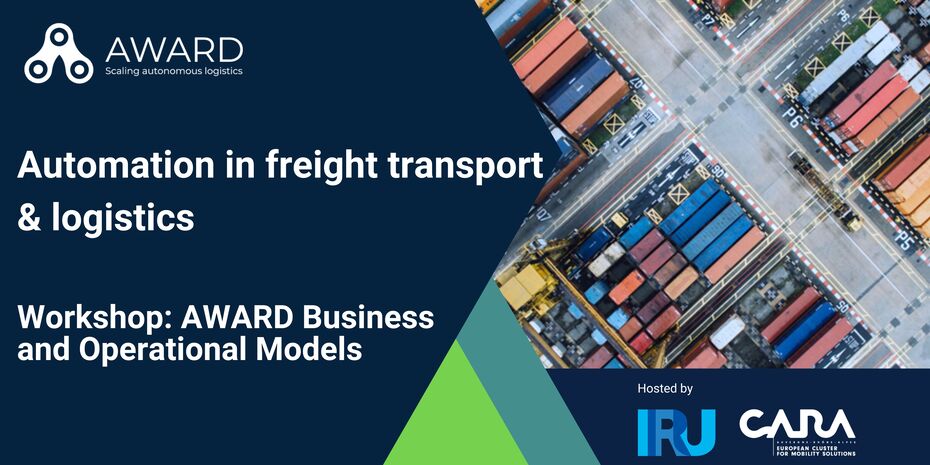In the framework of AWARD’s business models development, on 29 November, IRU and Cara Cluster organised online the Automation in freight transport & logistics: The AWARD Business Models Workshop with experts in automation and road transport, ports, airports and industrial areas. In total there were approx. 37 participants.
The objective of the workshop was to present the latest findings in the Market analysis of AWARD, the SWOT analysis, present the use-cases developed in AWARD and the Fleet Management System from a business perspective and get feedback from the experts on important aspects that will allow AWARD to develop sustainable and financially viable business models based on the 4 use-cases implemented.
During the workshop, participants had the opportunity to share their views on how business models can be shaped for automated logistics operations. The workshop went beyond the survey and debated the results, to identify the ways different applications of automation should be commercialised.
→ You can still take the Business Model survey!
The following are some of the results of the poll questions and the discussion of the results obtained by the workshop participants during the interactive session.
What value does automation bring compared to a traditional human-driven vehicle?
No Data Found
Which additional resources are required for the shift from a conventional vehicle to an automated one?
No Data Found
If you were in the situation to acquire an automated vehicle, would you prefer to purchase or lease it?
No Data Found
Which of the following options regarding ROI (return on investment) would lead you to acquire an automated vehicle rather than leasing it?
No Data Found
The participants debated on the polling questions and interesting discussion on the value automation brings compared to traditional human-driven vehicle, the resources and infrastructure required to shift to automated vehicles in logistics, the ROI of automated vehicles and whether an autonomous vehicle (leased or purchased) can be best used by businesses.
